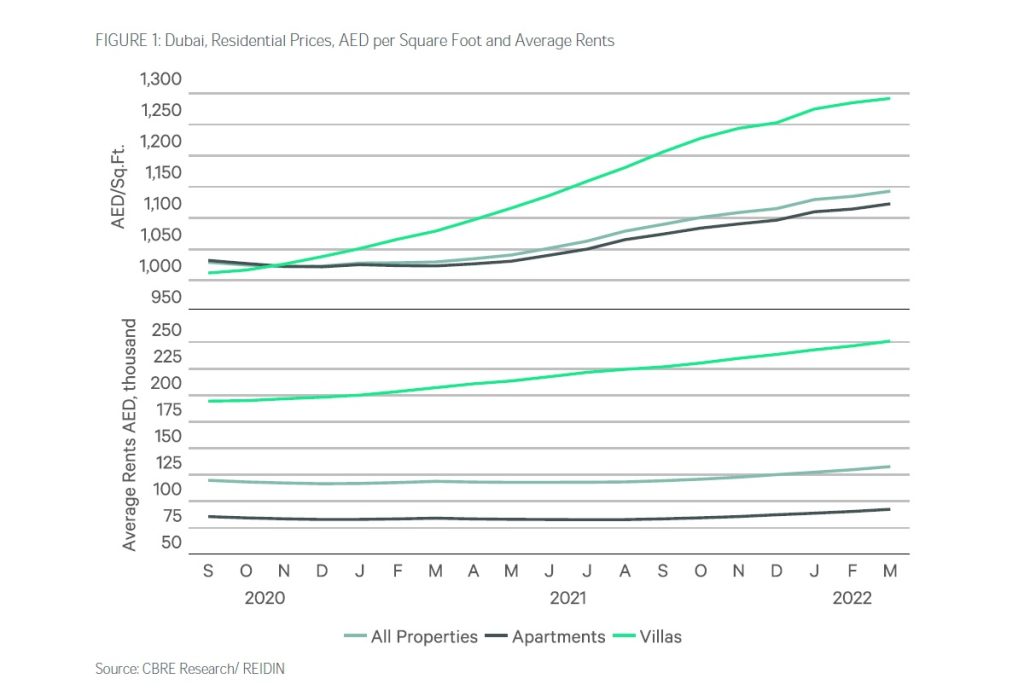As rental prices soar in Dubai, it’s crucial for tenants to be aware of their rights and the regulations governing rent increases.
At Altitude, we are here to provide clarity on rent increase rules in Dubai. We have reported a 36% increase in rental prices in Dubai in 2022, with a significant rise in tenants opting to renew their tenancies. Consequently, due to strong market conditions, landlords have been raising rents, which is bad news for tenants. So, what is the maximum rent increase a landlord can demand in 2023? When can they do it? And if you’re unhappy with a proposed rent increase, what rights do you have to negotiate or refuse?

These questions are crucial because it’s essential to know what your landlord can and can’t do. If you’ve recently received a rent increase notice or expect one soon, here’s everything you need to know.
Can my landlord increase my rent? Yes, landlords can increase the rent, but not during the agreed lease period. Rent increases can only occur at the time of renewal.
The Dubai Land Department (DLD) mandates landlords to provide tenants with a 90-day notice if they intend to raise the rent. This means they should notify you at least 90 days before your tenancy contract’s renewal date, with the rent increase taking place upon renewal.
What if my landlord did not comply with the 90-day notice? If your landlord fails to provide a 90-day notice, you have the legal right to refuse the rent increase. A landlord cannot increase your rent without notifying you in writing or electronically. If your landlord doesn’t comply with the 90-day notice, your contract automatically renews at the same rental price.
If your landlord insists, you can file a case at the Rent Disputes Settlement Centre. This will cost you 3.5% of your annual rent, but successful applicants usually have their costs awarded by the judge.

Is there a cap on rent increases? Decree Number 43 governs rent increases in Dubai for 2023. If the existing rent is:
- Less than 10% below the average market rental rate, no rent increase is permitted.
- Between 11% and 20% below the average market rental rate, a maximum increase of 5% is allowed.
- Between 21% and 30% below the average market rental rate, a maximum increase of 10% is allowed.
- Between 31% and 40% below the average market rental rate, a maximum increase of 15% is allowed.
- More than 40% below the average market rental rate, a maximum increase of 20% is allowed.
How do I know the average market rental rate? The DLD’s Rental Index helps tenants and landlords determine the average market rental rate. Visit the online rental index calculator and fill in the required fields, such as property type, area, and bedrooms. The tool will calculate the average rent.
The Rental Index is a useful reference for tenants and landlords regarding rental values. It helps determine the average market rent and maximum rent increases.
What can I do if my rent increase isn’t reasonable? If you believe your landlord is trying to increase the rent beyond the Rent Index’s limits, discuss this with them and clarify the allowed rent increase. If negotiations fail and you’re confident you’re in the right, you can file a case with the Rent Disputes Settlement Centre.
Receiving a sudden rent increase notice from your landlord can be shocking. We hope this blog helps you understand when and how your landlord can increase your rent.
Got more questions?
Our friendly, expert team is just a phone call or email away!



